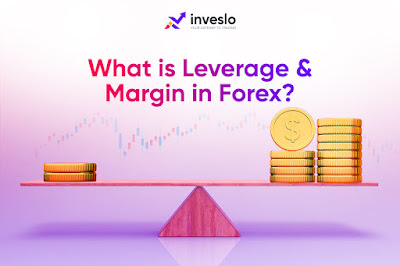What is Forex? What Moves the Forex Market?
Introduction: What is Forex
In the trading business, the stock market has typically garnered the most attention, but foreign currency (forex) trading has exploded in recent years. The accessibility, liquidity, and high leverage of trade forex online have attracted many active traders. Intraday traders may react instantly to breaking news and events, eliminating the need to wait for the market to open and the danger of "paying the gap."
Hedge funds, large commodity trading advisers (CTAs), and institutional investors were historically the only ones with access to the foreign exchange (forex) market due to laws, capital requirements, and technology. However, in recent years, several new companies have emerged to serve retail traders in the forex trading platform.
Since traders in equities and futures realised that price-based approaches based on technical and quantitative analysis, which they've been employing successfully for years in their own markets, are also relevant to forex, this sector of the trading business has grown rapidly.
From a price action standpoint, currencies don't spend much time in narrow trading ranges and more often than not form robust trends. The market routinely overshoots and subsequently corrects because more than 80% of currency trading activity is speculative.
Many of the macroeconomic triggers and events used by traders in the equities or futures markets, such as interest rate changes and data releases, are also important in the foreign trading market. And currency fluctuations are significantly associated with price changes in a wide range of commodities and indexes.
For instance, the Australian dollar is positively correlated with the price of gold by almost 80% due to Australia's status as the world's third-largest gold producer. Because of this, many traders in commodities also engage in forex trade in order to hedge their holdings or get leverage.
The most frequently traded currency pairs are the Euro to US Dollar exchange rate (EUR/USD), the British Pound to US Dollar exchange rate (GBP/USD), the US Dollar to Japanese Yen exchange rate (USD/JPY), and the US Dollar to Swiss Franc exchange rate (USD/CHF). Table 1 displays the one-year and five-year trading ranges for this and other currency pairs.
 |
| Source: Inveslo |
What Moves the Forex Market?
There are five factors that have an impact on the forex market.
1.
Rate of interest
When you trade forex online. holding a
country's currency results in larger interest payments if interest rates rise,
increasing the potential for profit growth. As a result, traders strive to buy
it up, driving up the currency's price. In contrast, if rates are lowered,
profit prospects are reduced and the currency is seen as being less valuable,
which prompts individuals to want to sell it off. The price of the currency
decreases as demand declines.
2.
Economic factors
The perception of a low level of risk
associated with an economy that is stable is attractive to investors from other
countries. Because of this demand, the price of its currency has increased. In
contrast, a weaker economy causes investors to lose confidence, which leads to
a withdrawal of their investments and a subsequent decline in the value of the
currency.
3.
Trade-weighted Index
The trade-weighted effective exchange rate index (TWI) is a multilateral exchange rate index and a typical variant of the effective exchange rate index used in online forex trading. It is calculated as a weighted average of exchange rates between domestic and foreign currencies, with the weight for each foreign country corresponding to its percentage in international trade.
When exports exceed imports, an economy
is considered to have a "trade surplus," which strengthens the
economy's stability. The value of the currency increases when overseas
customers purchase exporting items with the currency. Alternatively, when
imports exceed exports, an economy faces a "trade deficit." To
acquire the imported items, the nation must sell its own currency, resulting in
a decline in currency value. The TWI is a basic metric for assessing the
aforementioned factors.
4.
Global events
Geopolitical events, crises, and upcoming elections may all impact the value of a currency depending on the impression of a nation's stability. A favourable event may attract overseas investors, with an increase in foreign money boosting the currency's value. A nation under crisis might result in a loss of confidence and currency devaluation.
5.
Public sector debt
Government debt is not inherently bad
in and of itself. It may aid in the enhancement of local infrastructure and
innovative economic development. However, when it becomes excessive, it may
result in inflation and currency depreciation. When public debt is decreased,
the economy becomes more stable and once again attracts more investors, which
raises the currency's value. If the national debt rises, the government may
issue additional currency, increasing the amount in circulation (known as
quantitative easing). This lowers prices by reducing the value of current
currency holdings.

Comments
Post a Comment